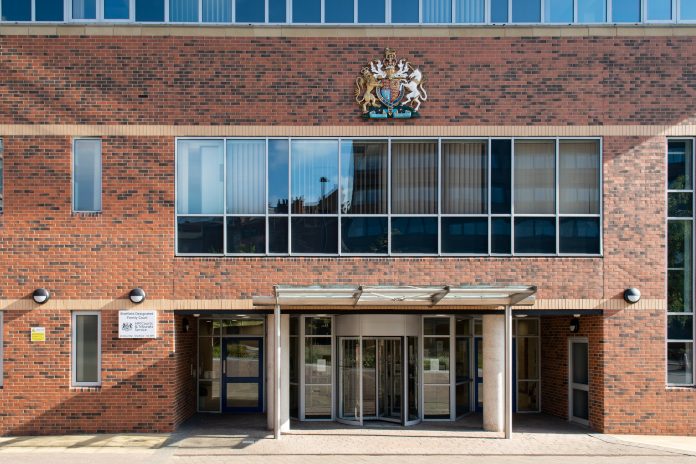Lucinda Holliday, head of family and divorce at Blaser Mills Law, discusses what the new overhaul of how the family courts deal with horrific crimes includes and how it will help protect those impacted by domestic abuse
On 25th June 2020, the government announced survivors of domestic abuse and their children will receive greater protections in an overhaul of how the family courts deal with these crimes.
This comes after an expert-led review into how the family courts handle domestic abuse and the unnecessary risk victims and their children were being exposed to during proceedings. The panel included representatives from charities, the judiciary, family law practitioners and academia. The review took into consideration the views of more that 1,200 individuals and organisations.
What does the overhaul entail?
A reform will see victims of domestic abuse given access to separate building entrances and waiting rooms, as well as protective screens to shield themselves from their alleged abuser in court.
Ministers will make it easier for judges to issue barring orders to prevent abusive ex-partners from continually taking their victims back to court and dragging out proceedings longer than they need to be.
The reform will also alter how courts hear cases, through a new investigative approach that has been adopted. This will be trialled as part of the Integrated Domestic Abuse Courts pilot, and will consider family and criminal matters in parallel to provide consistent support for victims. Greater attention will also be paid to finding the root cause of an issue raised in family court, to ensure there is no element of abuse, whilst ensuring all parties remain safe and can provide evidence equally and fairly.
A review into the presumption of ‘parental involvement’ will also be launched by Ministers which encourages a child to have a relationship with both parents unless that contact puts the child at risk. The review will look at whether there is the right balance between the risk of harm to children and victims, as well as the right way for a child to have contact with both parents. Further details on this review will be announced at a later date.
The Domestic Abuse Commissioner and Victims’ Commissioner has also been invited to monitor and report on private family law proceedings involving victims of domestic abuse to ensure proceedings protect victims.
What does this mean for victims?
Family courts see some of the most vulnerable people in society who need protection and the overhaul will safeguard domestic violence victims further.
The expert-led review found that the process in the family courts often worsened conflict between parents and, in some cases, could retraumatise victims and their children. It is hoped the new measures will help prevent this by reducing the amount of contact the victim has with their abuser. Perpetrators will no longer be able to cross-examine their victims in person in the England and Wales family courts. Often, continued interaction via the courts continues the domestic abuse as many abusers drag their victims back to court multiple times which can cause emotional distress and further abuse for victims.
The Bill is also backed by £35 million to help support victims and their children, as well as an additional £76 million extra funding that was announced in May to support vulnerable victims during the COVID-19 pandemic, which includes victims of domestic abuse and sexual violence.
What steps should people take if they are experiencing domestic abuse?
During the three month lockdown, domestic abuse cases in the UK have increased, and victims have found themselves at greater risk and more vulnerable than ever before.
Even though lockdown restrictions are being eased, it does not mean that perpetrators of domestic abuse will stop, especially as the government urges us to continue to spend more time at home. However, it does give victims a greater opportunity to seek the help they need.
In the confines of the family home, it may have been hard to discuss the abuse with someone trusted from another household, however, the easing of restrictions now allows us to leave our homes to meet up with others who are not in our household. Meeting up with someone trusted outside the family home can allow victims to make someone else aware of the abuse and may be able to offer them a safe place to stay.
Anyone in a position where they are safe to speak to a support service should do so. They can help victims consider their safety options, as well as providing emotional support. The National Domestic Abuse Helpline, run by Refuge, is open 24 hours a day and can be contacted on 0808 2000 247. However, if a person or someone else in their home is at immediate risk of harm, they should call 999.
When the victim feels safe to do so, they should consider the legal steps they can take to ensure their continued safety. There are two types of injunctions the Family Court can make. The first is a ‘non-molestation’ order. This is used to prevent a person from intimidating, threatening, harassing, or pestering the victim. It can also be used to protect children.
The second type of order is an ‘occupation order’. This type of order is used to regulate the occupation of the family home. In other words, it can be used to determine who should live in it, and/or whether the other person should be excluded from it. A person can also be banned from going within a certain distance of the home.
Anyone unsure which legal steps to take should always seek the help of a professional, making sure they choose a respected lawyer who understands and has experience advising on domestic abuse.




![Europe’s housing crisis: A fundamental social right under pressure Run-down appartment building in southeast Europe set before a moody evening sky. High dynamic range photo. Please see my related collections... [url=search/lightbox/7431206][img]http://i161.photobucket.com/albums/t218/dave9296/Lightbox_Vetta.jpg[/img][/url]](https://www.openaccessgovernment.org/wp-content/uploads/2025/04/iStock-108309610-218x150.jpg)






